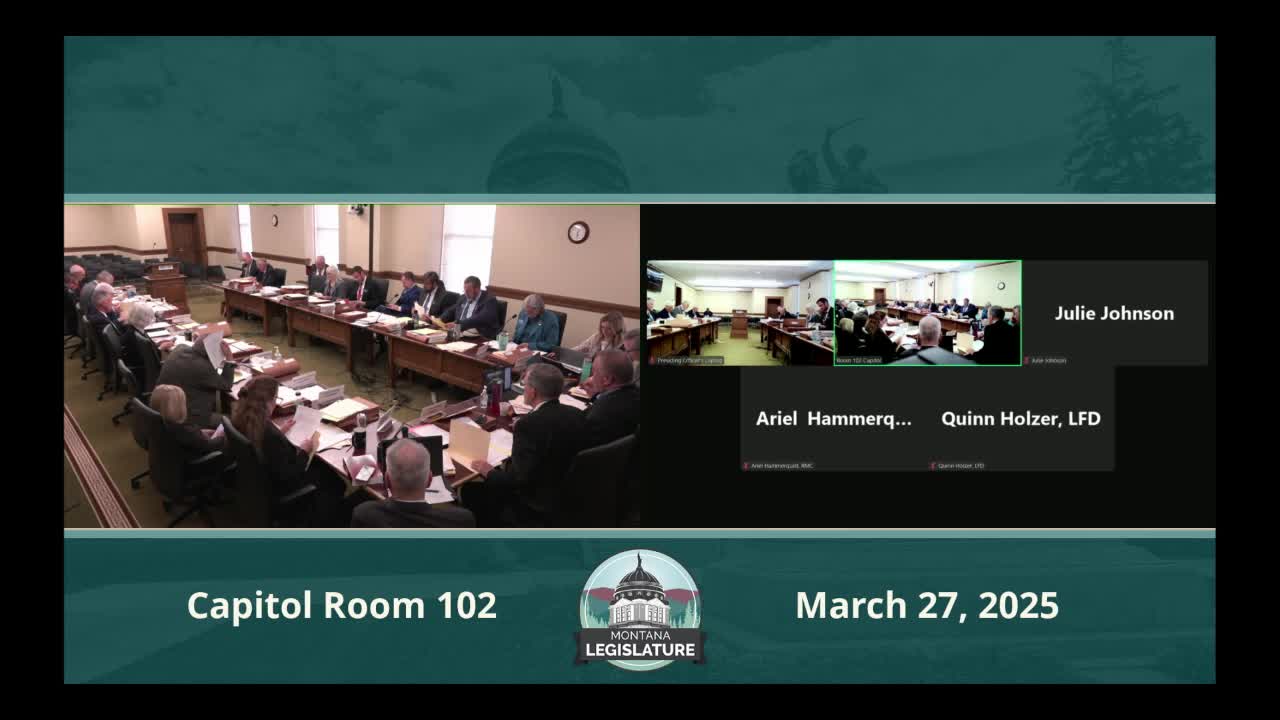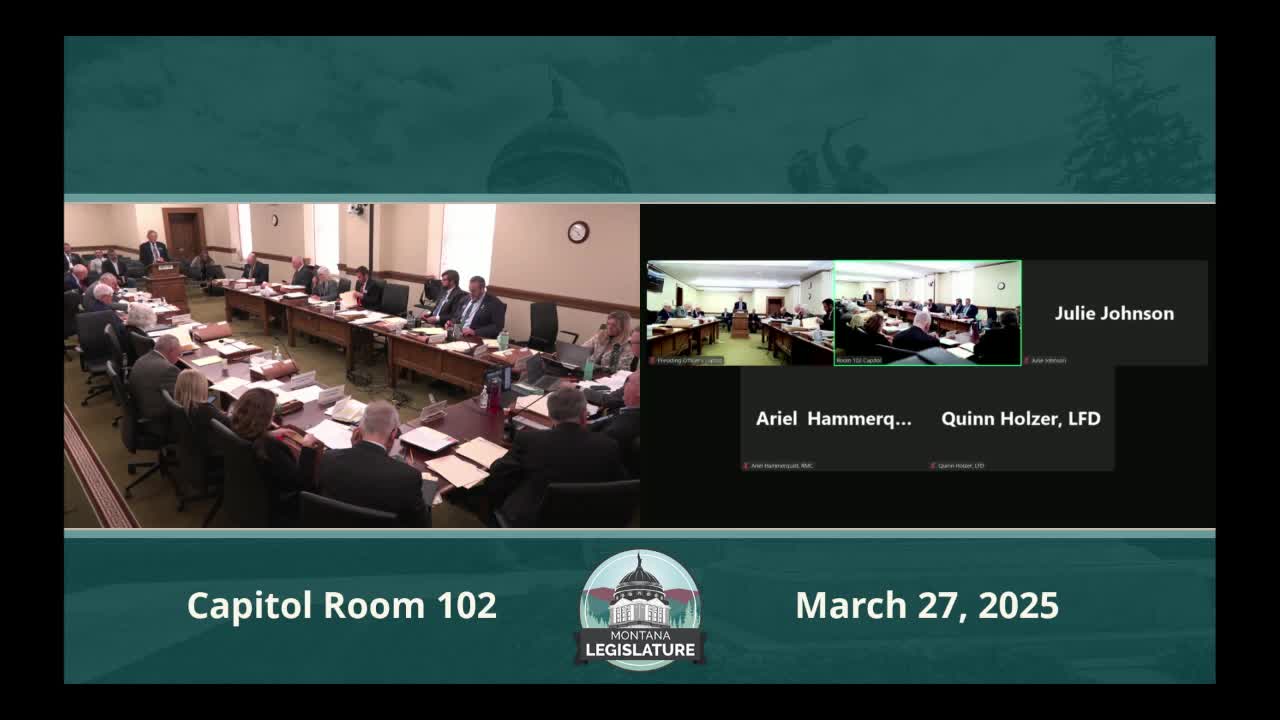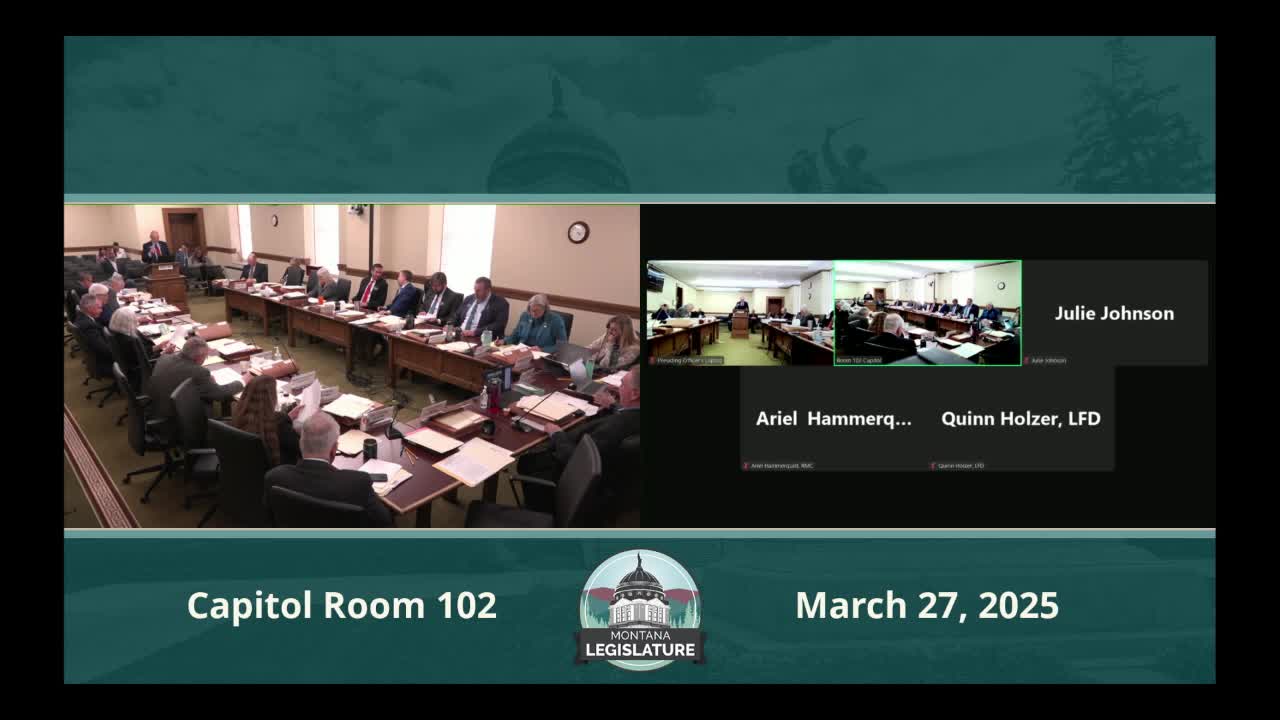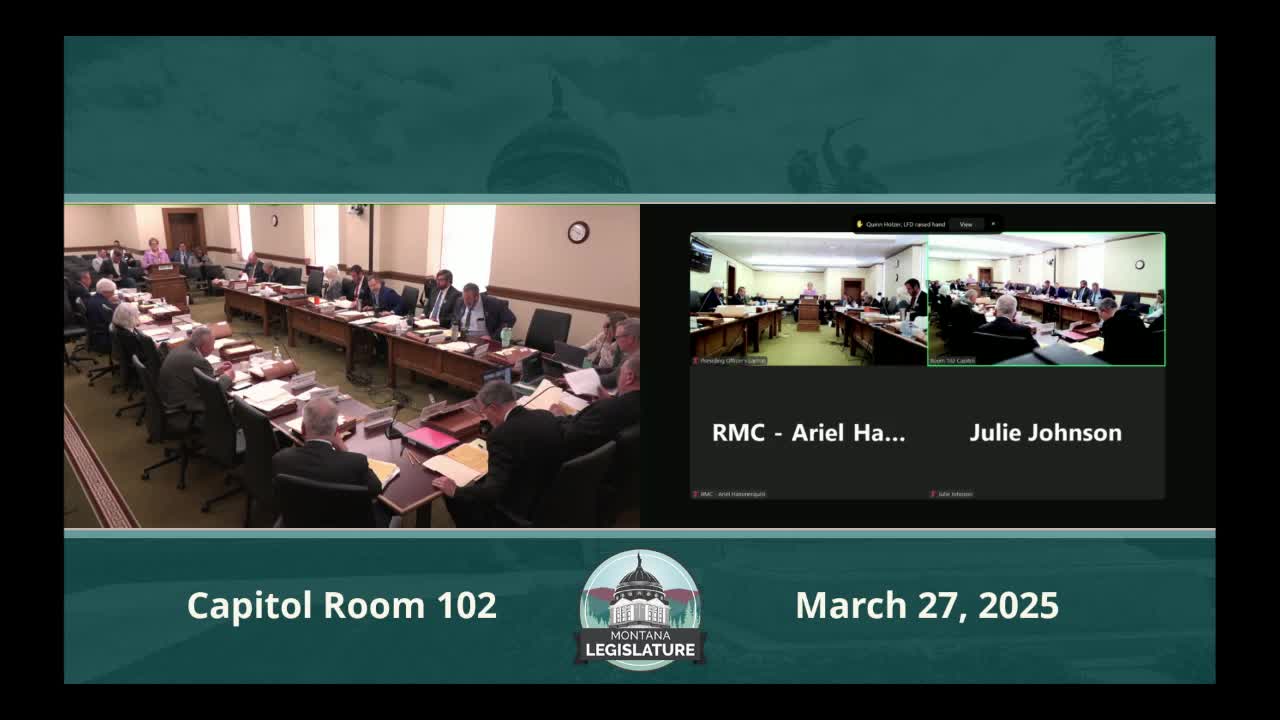Article not found
This article is no longer available. But don't worry—we've gathered other articles that discuss the same topic.

Votes at a glance: committee executive actions and roll calls

Proposal would set aside $6 million for low-interest loans to reopen closed sawmills

Bill would let homeowners holding residences in LLCs, trusts claim property tax rebate

